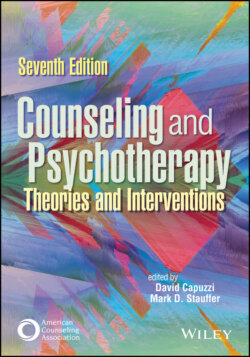Читать книгу Counseling and Psychotherapy - Группа авторов - Страница 108
Supporting Research RCT in Varied Counseling Settings
ОглавлениеAs the counseling and related mental health professions move to support integrated, relational, multicultural, and trauma-informed approaches, researchers applied RCT to working with clients suffering from various traumas (Duffey & Haberstroh, 2020; Hitter et al., 2017; Jordan & Duffey, 2020; Kress et al., 2018). When we conceptualized trauma work in the book Introduction to Crisis and Trauma Counseling (Duffey & Haberstroh, 2020), we invited scholars and practitioners to frame crisis and trauma counseling using RCT as a foundational way to conceptualize the counseling relationship while integrating trauma-informed and trauma-specific practices. A counselor’s relational presence during times of crisis and trauma can help clients experience safety and rework traumatic disconnections. Bessel van der Kolk (2014) reiterated that a counselor’s attuned presence in trauma counseling is the most important factor in trauma recovery. Likewise, Kress et al. (2018) concluded that
relational-cultural theorists posit that isolation from others is a primary source of emotional suffering, [and] social withdrawal can prolong and compound trauma survivors’ emotional pain. RCT provides a nonpathologizing and culturally sensitive framework for counselors to use with clients who have traumatic stress disorders. (p. 111)
Given the damaging effects that arise from interpersonal, historical, and cultural traumas, RCT counselors provide the foundational relational attunement when working with people who have suffered various traumas. Other researchers integrated RCT with traditional counseling approaches, including reality therapy (Haskins & Appling, 2017), addictions counseling (Vandermause et al., 2018), career counseling (Storlie et al., 2017), college counseling (Crumb & Haskins, 2017; Lenz et al., 2016), group work (B. Hall et al., 2018), school counseling (Tuttle & Haskins, 2017), and supervision theory (Duffey & Haberstroh, 2014).
